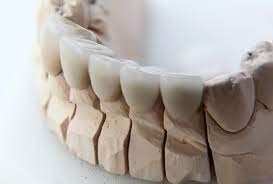MTHFR and Dentistry
MTHFR irregularities affect many aspects of patient’s lives, and dentistry is one of them.
Methylenetetrahydrofolate reductase (MTHFR) is an enzyme that is produced naturally in the body. The MTHFR gene that codes for this enzyme has the potential to mutate, which can either interfere with the enzyme’s ability to function normally or completely erradicate its effects. MTHFR mutations are quite common and can cause a wide variety of health disorders. When MTHFR mutations are undiagnosed, they may lead to problems such as:
- Gum Disease
- Tooth decay
- Heart problems
- Mood disorders
- Chronic pain
- Inflammation
- Miscarriage
- Certain Cancers
- Other Illnesses
What does the MTHFR gene do?
MTHFR is responsible for producing the enzyme methylenetetrahydrofolate reductase. This gene is a crucial component to a process known as methylation. This process optimizes functions in your body such as producing DNA, metabolizing hormones, and proper detoxification.
Like many other genes, this gene can mutate. This mutation can cause disruptions in methylation. This means that your body will likely change the way you metabolize and covert nutrients from food into usable vitamins, minerals, and proteins. This genetic mutation may also affect levels in hormones and neurotransmitters, brain function, digestion, cholesterol, and more.
Effects of a defective MTFHR gene
As we mentioned above, with a mutation, your body’s processes may be interrupted and prevent the body from functioning at its best. When the MTHFR gene is defective, it makes the process of breaking down and eliminating folic acid difficult along with other substances like heavy metals.
Since folic acid cannot be converted into its usable form, build up occurs. This can lead to higher levels of homocysteine, this is linked to a higher risk of cardiovascular disease. In addition, this also affects glutathione conversion which is crucial in removing waste.
Aside from dental problems that can occur, a mutated MTHFR gene have been linked to:
- ADHD
Autism - Autoimmune disease and thyroid problems
- Colon cancer
- Digestive Issues (including IBS)
- Migraines
- Schizophrenia
MTHFR in dentistry
At Pure Holistic Dental we want to be sure we are looking out for your health as a whole. That is why we take MTHFR mutations into consideration when we help restore your mouth to a healthy state.
We understand that seeing the dentist may induce anxiety. Many dentists offer laughing gas or nitrous oxide to reduce anxiety and help patients relax. When the MTHFR gene has been mutated, nitrous oxide causes an elevation in homocysteine levels through irreversible inactivation of vitamin B12. If nitrous oxide must be used, it is essential to supplement B12 a few days before and after the procedure. Epsom salt bath to aid in the process of metabolizing the nitrous and any other sedative medications. In severe mutations, or individuals with an existing B12 deficiency, we must avoid using nitrous oxide.
Managing the symptoms of MTHFR irregularity
Having this mutation does not mean you will experience the above symptoms/health issues above. There are many variants of this mutation, each affects individuals differently.
1. Folates and Vitamins B12
Consuming more folate may assist in methylation. Food sources rich in folate include dark leafy greens, avocados, and lentils
Having an MTHFR mutation can mean a higher risk of B12 deficiency, this is something that is easily supplemented. Foods high in this vitamin include pasteurized eggs, nuts, beans, and nutritional yeast.
2. Support detoxification
Reduced methylation contributes to poor detoxing, that’s why it’s important to support your body’s natural elimination pathways.
Some tips to improve your body’s detoxification process:
- High fiber diet
- Eating anti-inflammatory foods such as veggies, proteins, healthy fats, and fruit. Strive to eliminate all refined sugars from your diet.
- Move and exercise to sweat regularly. Saunas and epsom salt baths can help as well
- Stay hydrated and keep the bowels moving
- Avoid exposure to toxins like household cleaner
3. Heal underlying digestive issues
Healing the gut is critical to improving your health and bringing the body back to its optimal state. Some of the best changes to make to your diet include:
- Promoting a healthy microbiome by eating fermented foods such as kimchi, kefir, miso, and kombucha. This will help maintain high levels of healthy bacteria and aid in digestion.
- Reducing the intake of inflammatory foods such as sugar, gluten, refined grains, trans fats, and conventional dairy
- Healthy fats help heal and feed the cells that line the gut. N-butyrate can be found in the form of coconut oil or ghee.
- Bone-broths, organic veggies and fruits rich in prebiotic fiber, flaxseeds, and chia seeds are some other gut-friendly foods.
Are we a good fit for you?
- You want to save time and money over your lifetime to get optimal health
- Your goal is to be the healthiest version of yourself to feel the best
- You want the least amount of dental work possible



